The child stars’ house of terror: ‘If everyone knew, who could we turn to?’
The documentary ‘Quiet on Set: The Dark Side of Kids TV’ sheds light on the sexual and psychological abuse suffered by young actors and other employees on children’s series
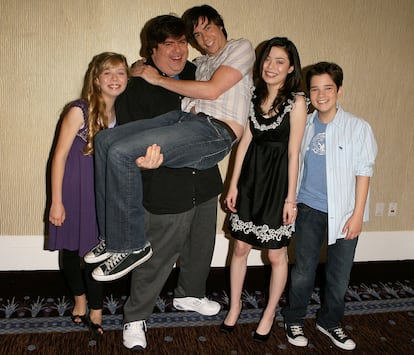
When the #MeToo movement gathered momentum in 2017 and Hollywood heavyweight Harvey Weinstein was pulled off his pedestal, there was a domino effect in the industry that ended the careers of powerful figures previously considered untouchable. This was not confined to the big screen. It also happened in television. With the sketch series All That (1994) for the children’s channel Nickelodeon, producer, screenwriter and actor Dan Schneider became a key player in kids TV, pursuing ambitions to build a miniature Hollywood, with its own pre-teen stars, its own awards ceremony — the Kids’ Choice Awards — and a wide range of entertainment.
After that initial show — a sort of children’s version of Saturday Night Live — came other highly successful shows that became a reference for an entire generation of viewers, such as Drake & Josh (2004), Zoey 101 (2005), iCarly (2007), Victorious (2010) and Sam & Cat (2013). But, in 2018, the empire came crashing down.
When the end of the collaboration between the network and Schneider was announced, the website Deadline published an article that alluded to serious problems concerning Schneider, both in his treatment of underage actors and of other members of the team. It also reviewed public aspects of his behavior, such as his obsession with children’s feet — Nickelodeon even had a foot as a brand logo — which came to a head in 2013 with an initiative asking for pictures of his viewers’ feet on Twitter, now known as X.
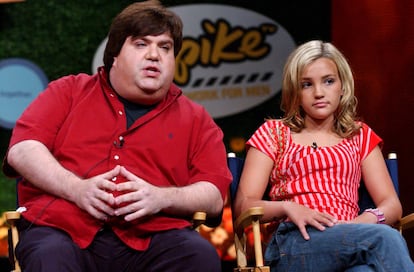
Several subsequent articles and investigations compiled multiple accounts of verbal abuse, requests for massages and sexism, while long videos of jokes and sexual innuendo in scripts performed by pre-teens on the network’s shows became a talking point on social media.
“I remember a lot of giggles around me when we were filming it and the kids exclaiming: ‘It’s a cumshot!’” says actress Alexa Nicolas in the documentary Quiet on Set: The Dark Side of Kids TV, a four-part series released in the U.S. on March 17 on HBO Max.
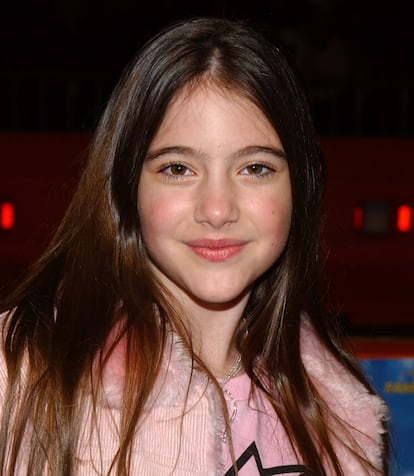
Alexa Nicolas is alluding to a gag in Zoey 101, a show she started working on at the age of 13, in which she squirts a substance resembling semen on Jamie Lynn Spears’ face. Quiet on Set provides dozens of examples of child actresses in similar scenes, but, above all, the documentary constitutes the most extensive look so far at what happened during Schneider’s years at the Nickelodeon network, with particular focus on the two known cases of pederasty that took place: one involving production assistant Jason Handy and the other involving acting and dialogue coach Brian Peck, known as the Pickle Boy for his recurring appearances in All That carrying a tray of pickles. He was arrested in 2003.
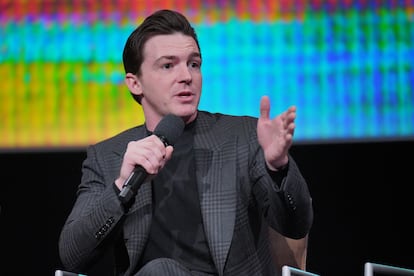
One of the documentary’s big reveals comes from Peck’s victim, actor Drake Bell, from the series Drake & Josh, who talks about the abuse for the first time. The teen star was 15 when he began to be sexually assaulted by Peck, and he describes both the abuse and the aggressive way in which Peck entered his life: after gaining his trust and friendship, he turned him against his father, who was always suspicious of Peck’s behavior, and went on to become a regular feature in Bell’s life, with constant phone calls, visits to his home and even trips to each of the legs of Bell’s concert tour that followed the launch of his music career in 2002.
Another of the child actors in All That, Kyle Sullivan, explains how Brian Peck proudly showed him and others the written correspondence he had with serial killer and sex offender John Wayne Gacy, imprisoned for killing 33 men, 15 of them under 18. The actor and dialogue coach treasured a self-portrait sent to him by Gacy.
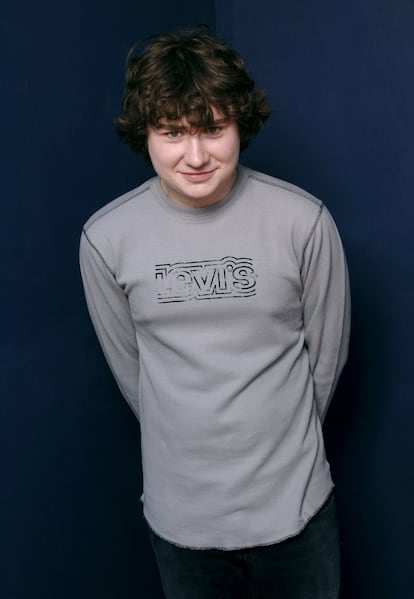
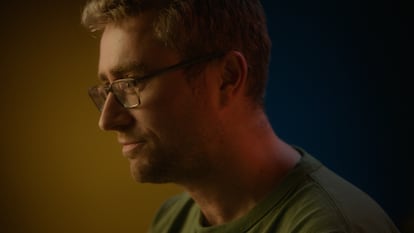
Directed by Mary Robertson and Emma Schwartz, and with significant input from journalist Kate Taylor who conducted extensive research on the subject for Business Insider, Quiet on Set also shows how the abuse took place with the knowledge and collaboration of other powerful figures. One of the most chilling moments in Drake Bell’s account is when he describes Peck’s trial, which he says was attended by “very well-known faces” who had come out in support of Peck. Actors such as James Marsden and Kimmy Robertson, known for playing Lucy in Twin Peaks, wrote letters to the judge requesting Peck’s release.
Meanwhile, at the home of production assistant Jason Handy, the police found 10,000 images of child pornography. Also arrested in 2003, Handy is dealt with in the second episode of the series, with the identity of his victims concealed — only one mother speaks out, under the name of MJ. With a modus operandi similar to Peck’s, Handy wheedled his way into the life of a young actress who had just been hired for All That, winning her sympathy and that of her mother. Shortly thereafter, he sent the girl an email with a picture of him masturbating and a text indicating that he was thinking of her. Handy also invited a nine-year-old girl to play video games at his house, where he kissed her repeatedly and tried to stick his tongue in her mouth. In his diary, he wrote: “I am a full-blown pedophile. I have been giving in to my desire for little girls over the past few weeks.”
Drunk with power and hungover with shame.
A common aspect of the stories told on Quiet on Set is the shame with which the victims recall the situations they found themselves in more than 20 years ago. It has only been since the release of the documentary that Dan Schneider has publicly apologized and acknowledged what is told in it — the different episodes flag up statements from interviewees that Schneider has previously denied or questioned.
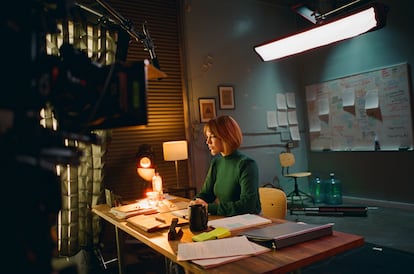
One example is that of screenwriter Christy Stratton, who, on the verge of tears, recalls how Schneider forced her to act out being sodomized while telling a story about high school, and humiliated her with bets, such as eating ice cream until she vomited in exchange for $300, which he never paid her.
The women who worked on the crew and gave their accounts say Schneider operated a gender bias, both in the selection of personnel and in the salaries paid. They agree that the producer used humor and fake kindness to get what he wanted. His displays of power were obvious both off and on set where someone would always have to be massaging him: in true playboy style, it occurred to him to pose in a Jacuzzi in the company of one of his biggest stars, an underage Amanda Bynes in a bathing suit.
“If everyone knew, who could we turn to?” says one employee who prefers to remain anonymous. Actress Jennette McCurdy, co-star of Sam & Cat with Ariana Grande, explained in her autobiography I’m Glad My Mom Died that a figure she calls The Creator regularly provided her with alcohol when she was a minor and gave her unsolicited massages. She also states that Nickelodeon offered her money in exchange for silence.
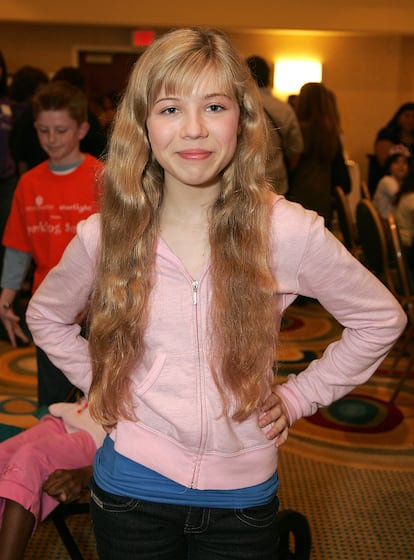
Many of the former child actors involved in Quiet on Set have sought psychological treatment, and some are still dealing with the trauma of what they went through. Jennette McCurdy talks in her book about an eating disorder sparked by the demands of the profession and her despotic mother, while others claim to have felt uncomfortable filming some of the supposedly funny scenes for Nickelodeon: there was even a kind of contest where the children put live scorpions in their mouths, and also lay down in a cubicle with snakes. Actress Amanda Bynes, for example, has suffered from severe mental health problems and addiction issues, extensively reported on by the tabloids.
Leon Frierson, one of the actors in All That, explains how hard it was for him to put on the tights of a superhero named Nose Boy with noses attached to his shoulders — another sexual innuendo, he believes, because of their resemblance to the penis. This, at an age when he was just getting used to his body. And the African-American Bryan Hearne speaks about how Schneider’s racial stereotypes affected his self-perception: in one sketch he is sold illegal cookies as if they were drugs and in another he plays a black fetus — Lil’ Fetus — who is already rapping inside the womb. His mother’s constant protests against the hurdles parents had to overcome to be near their children on shoots led to Nickelodeon dropping Hearne and him feeling “a failure.” In 2024, however, Hearne’s mother is sure she did the right thing: “I had no idea then to what extent I was saving my son. It was a house of terror.”
Sign up for our weekly newsletter to get more English-language news coverage from EL PAÍS USA Edition
Tu suscripción se está usando en otro dispositivo
¿Quieres añadir otro usuario a tu suscripción?
Si continúas leyendo en este dispositivo, no se podrá leer en el otro.
FlechaTu suscripción se está usando en otro dispositivo y solo puedes acceder a EL PAÍS desde un dispositivo a la vez.
Si quieres compartir tu cuenta, cambia tu suscripción a la modalidad Premium, así podrás añadir otro usuario. Cada uno accederá con su propia cuenta de email, lo que os permitirá personalizar vuestra experiencia en EL PAÍS.
¿Tienes una suscripción de empresa? Accede aquí para contratar más cuentas.
En el caso de no saber quién está usando tu cuenta, te recomendamos cambiar tu contraseña aquí.
Si decides continuar compartiendo tu cuenta, este mensaje se mostrará en tu dispositivo y en el de la otra persona que está usando tu cuenta de forma indefinida, afectando a tu experiencia de lectura. Puedes consultar aquí los términos y condiciones de la suscripción digital.









































